NewsMedical spoke with Kiki Coppelmans from InMotion VR about their Corpus virtual reality platform that offers innovative rehabilitative therapy solutions.
Please could you introduce yourself and your professional background?
My name is Kiki Coppelmans, and I'm a psychosomatic physical therapist. That means that I treat people with complex complaints, such as burnout, depression, chronic pain, or those recovering after a stroke or post-op. They don't follow the normal recovery process, as they need a little bit of extra help.
What inspired you to pursue a platform for virtual reality therapy?
In 2014, I had my first virtual reality experience thanks to my husband Gert-Jan Brok. He is a game developer and an interaction designer. He is fascinated with human beings, human interaction with computers, and how to combine and optimize the capabilities of both. One day, he brought home a VR headset that you plug into your PC. For me, it was an epiphany, because I was suddenly completely thrown into that environment. I was relaxed. I wanted to move. And I thought, "Oh my God, if only I could use this with my patients”. I said that out loud, and then my husband replied, "Let's do it."
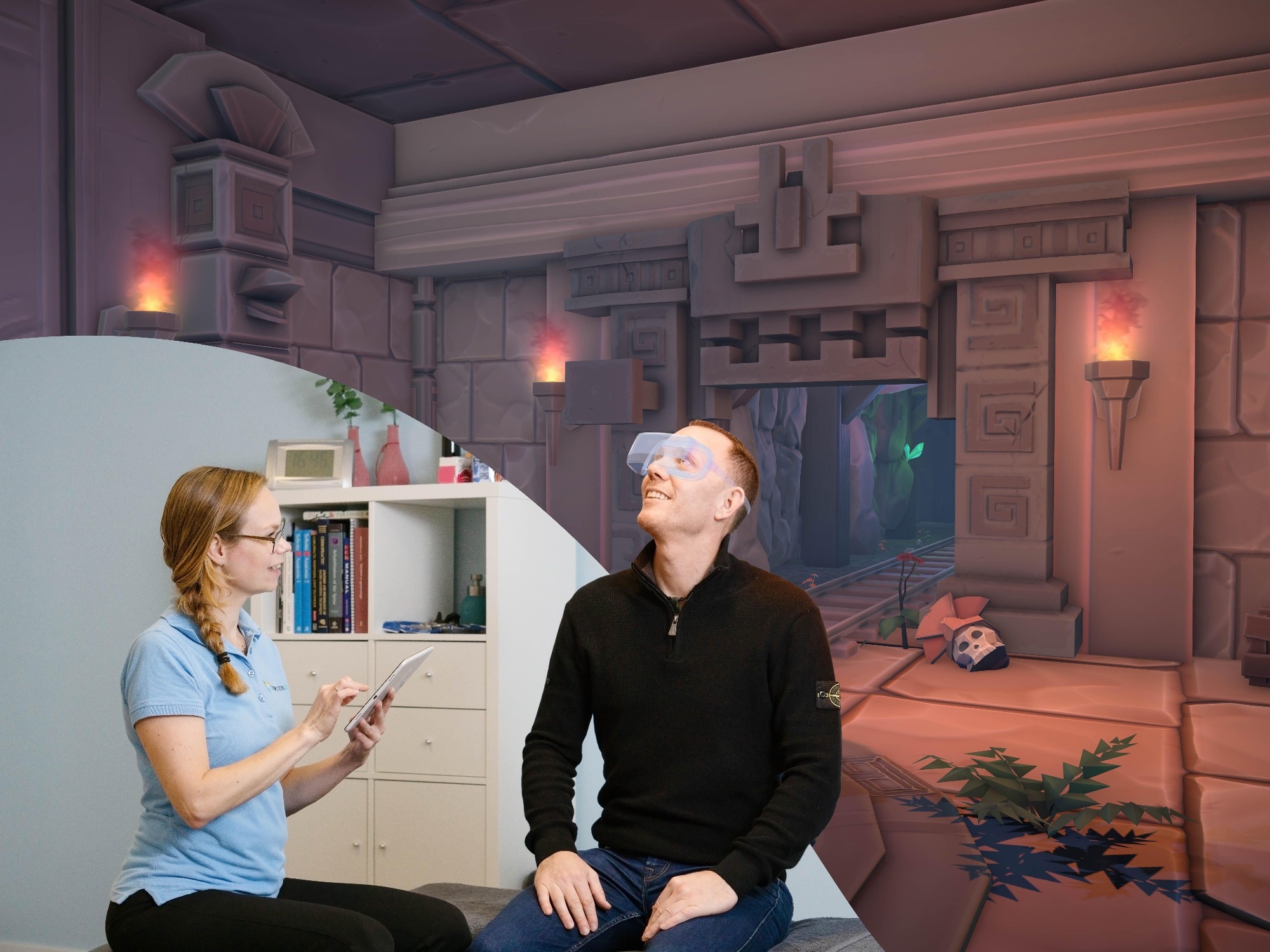
From there, we planned how we could use this technology in treatment. We started with building an environment for the treatment of whiplash (WADI&II). It’s a very difficult patient group to treat because they have a lot of fear of movement and have a high intensity of pain. Therefore, they need a different approach.
We built Corpus VR, in which we can visualize the range of motion of the patient and the therapist can alter it. The patient isn't fully aware of it as they are in a game-like environment. This means we can evoke more movement whilst also offering them feedback and encouragement that they can do more. This proves to be really motivating and gives them the self-esteem and confidence back that they can do more than they think. Often they lose sense of the fact that they can cope and that everything will be all right and the body's still functioning. We give them back that hope.
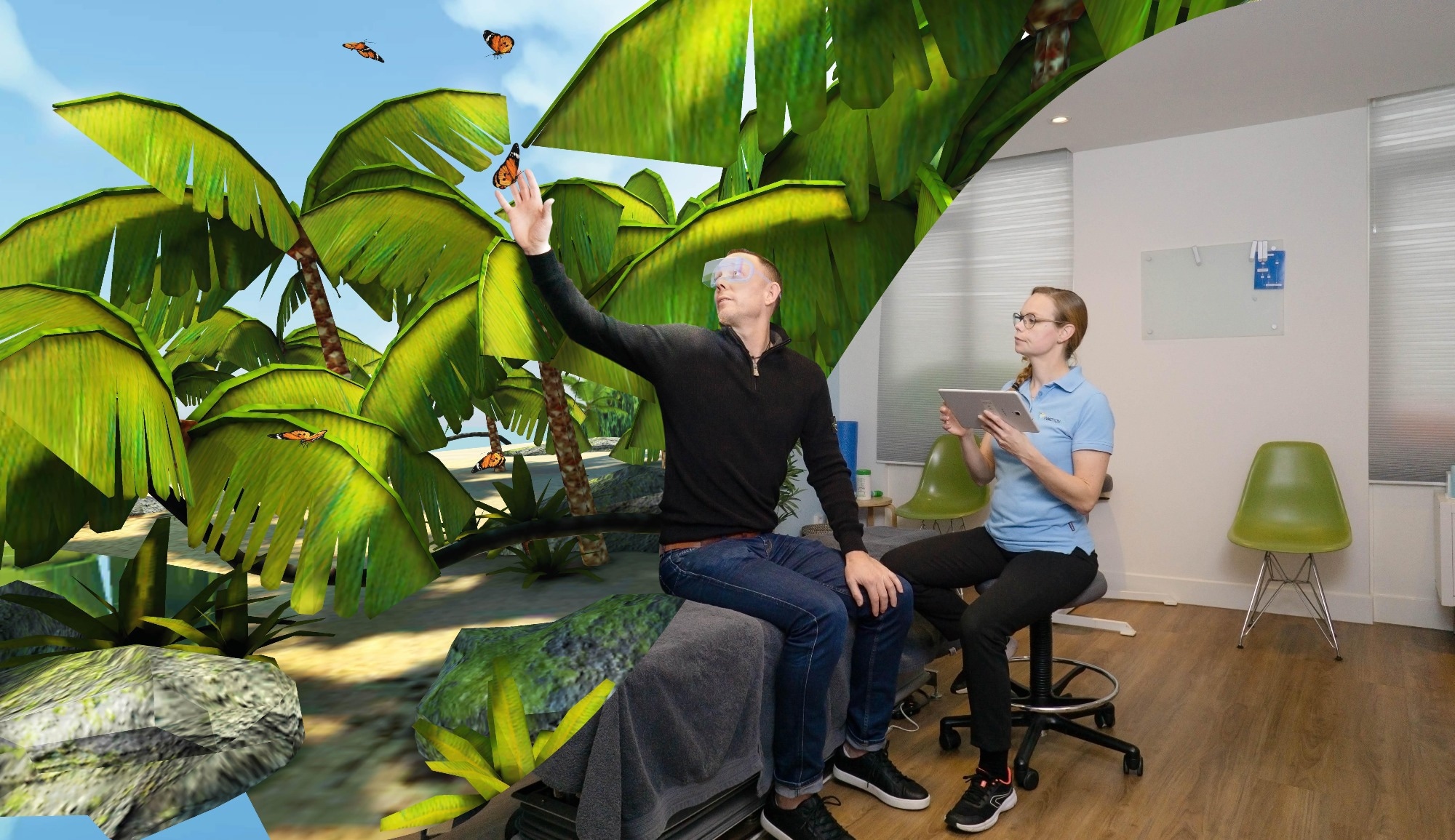
What games and virtual reality solutions does Corpus VR offer patients?
Corpus VR is developed by still taking physiotherapy methods into account, so it is very easy for therapists to understand how this technology works. The Corpus VR software is developed to gather the personal movement of the patient, and then with the headset on the patient is placed in a game-like environment where we use that data to personalize the treatment.
As the therapist, you can retrain the motor skills in the brain of your patients and train different treatment variables. The part you want to train can be targeted with games developed for specific purposes.
For instance, to evaluate a rotation-based exercise, we built a city-like game where patients can retrain neck movement by watching a car cross the street or train the proprioception and coordination of the muscles by letting the patient complete a gaze maze, a maze you solve by moving your head, in VR.
What are the problems with traditional physical therapy that virtual reality can overcome?
The main issue is resolving both the body and mind part. If you only treat complaints on the physical level, then you're not always going to solve the problem with your patient. When under a lot of pain, some people experience negative thoughts and stress that creates a feedback loop between pain, dizziness, and fatigue. We encourage patients to get into a positive mindset.
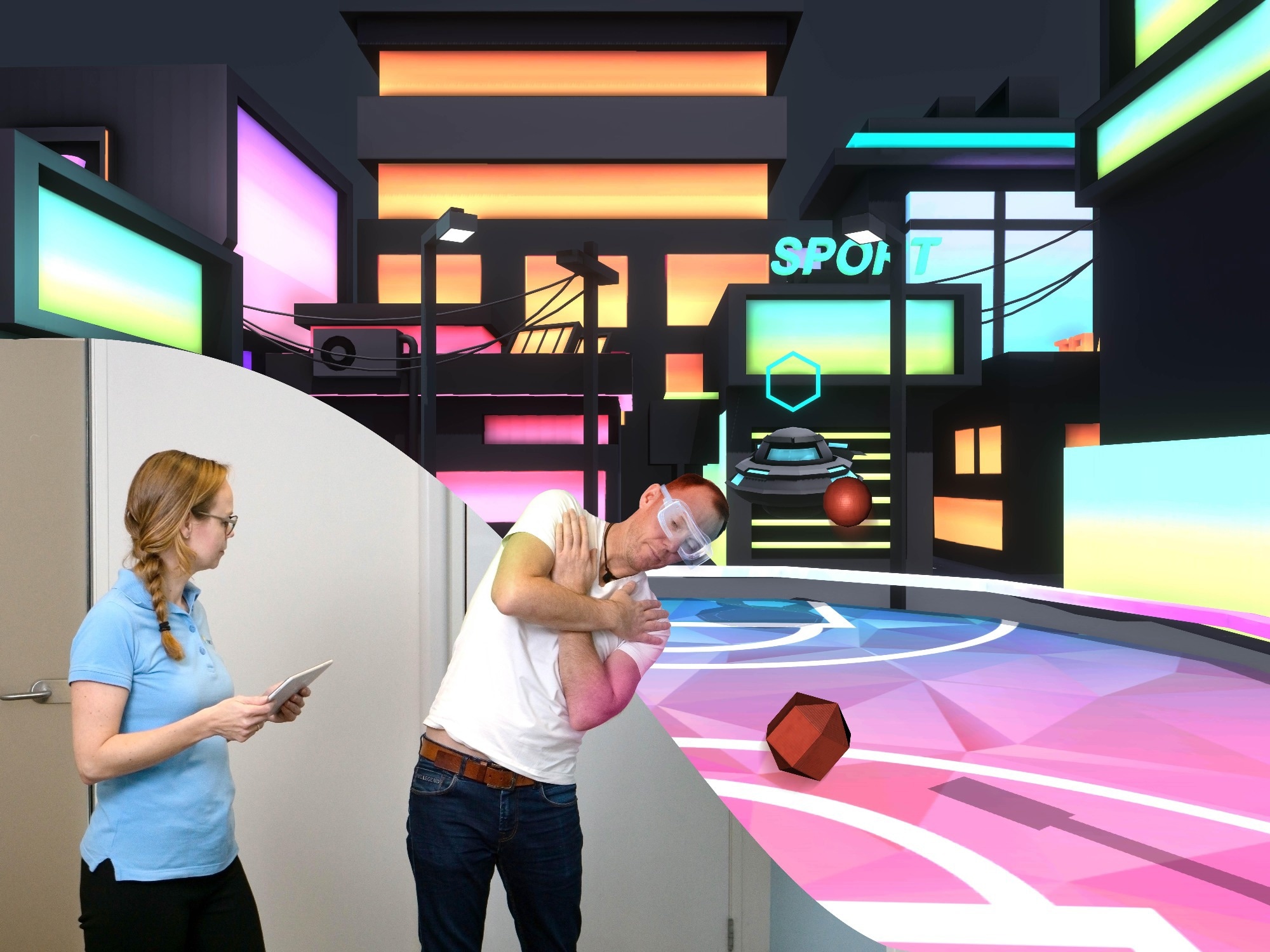
Most importantly, when you go to a physical therapist, the majority of the time you are assigned exercises you need to do at home. Without VR, and without Corpus VR, you're focused on the pain and what you experience during those exercises. If an external focus can also be offered, it shifts the focus more onto the fact you're just playing a game, even though the game is evoking the exercises. Suddenly, you are having fun while doing your exercises because you see that you are progressing.
The crucial element is that you can connect with your therapist and the therapy from home. This allows the therapist to see that you are doing the exercises, but he or she can also make it easier or more difficult. Therefore, you feel supported even from a distance because it's always on your level and what you need.
The vision behind the technology is that if both I as the therapist and you as the patient can be more engaged in your own recovery, then we are a golden team. This helps the recovery move along faster.
Would you say there has been a reluctance to adopt new technologies into rehabilitation?
Most therapists are conservative in their approach. They know what they need to do, and they're comfortable with it. It's all about a willingness to change. If we expect the patients to change their habits to get better quicker, we also need to do the same as therapists.
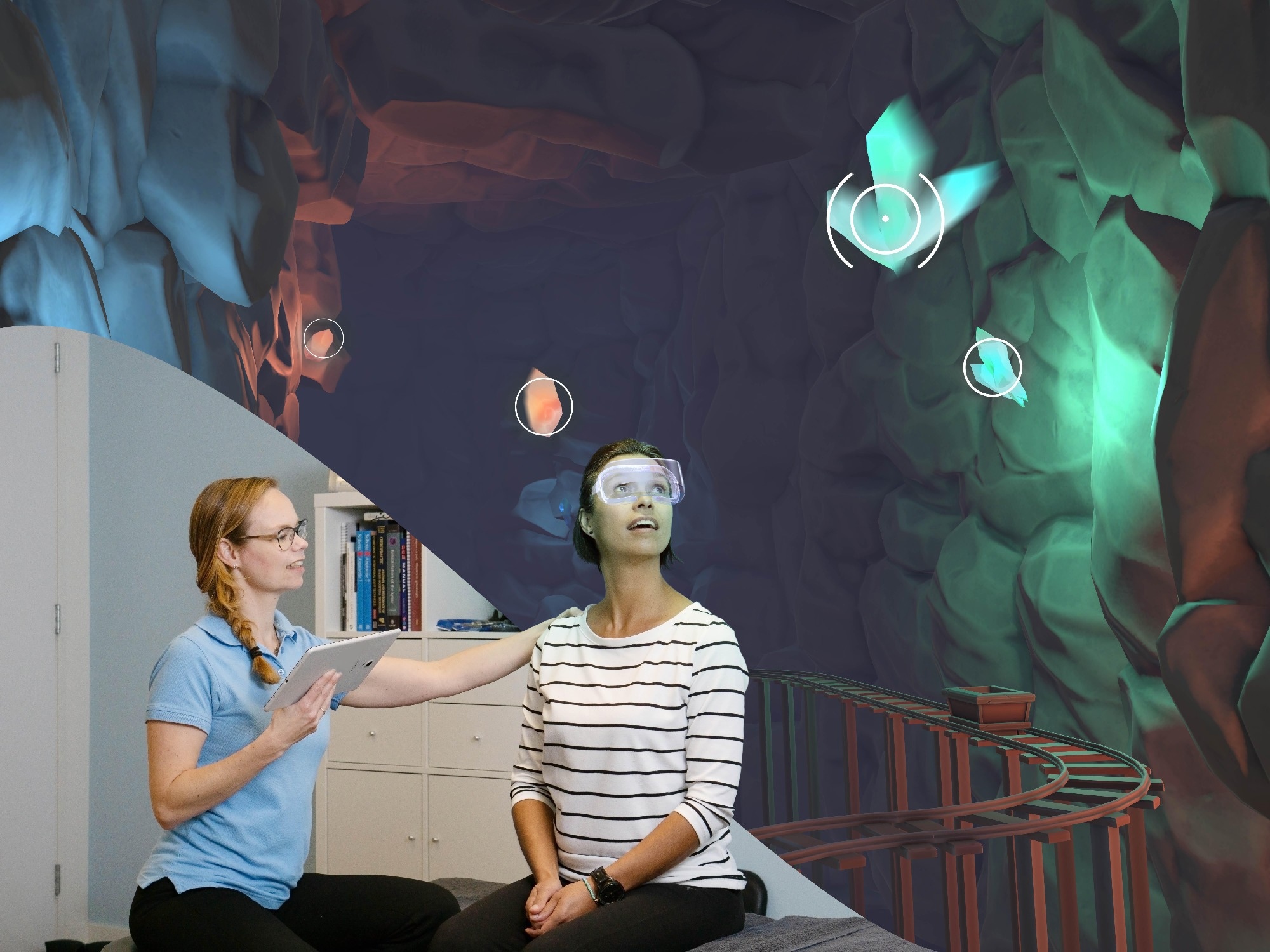
They need to adjust their workflow, and if they use new technology then it is true it costs time to adjust. As an upcoming, innovative company, we need to take that into account. If clients are going to use Corpus VR, we have to help them in that implementation process and ensure that they get properly acquainted with it.
How important are trade shows like MEDICA for exposure and networking as a smaller company?
We have already visited and exhibited at a variety of different trade shows. We never approached MEDICA early on because we wanted to be more established in the market. We have now been on the market since 2018, and for us, now was the right time to go to MEDICA.
What we see here are significant opportunities to talk to resellers from different countries. While we already have some resellers in different countries, this is really a universal tool - every therapist all over the world can use it because the methods in it are the same virtually everywhere.
What are the next immediate steps you will be taking to develop your virtual reality system?
Our next immediate steps are addressing the update in which we add six new different relaxation environments, with the collaboration of our German partner Magic Horizons. Corpus VR is a platform that can not only be used for physical and neurological complaints but also for behavioral and mental complaints, for example for patients with stress-related problems, burnout, and anxiety. This helps us to aid even more patients with their daily struggles.
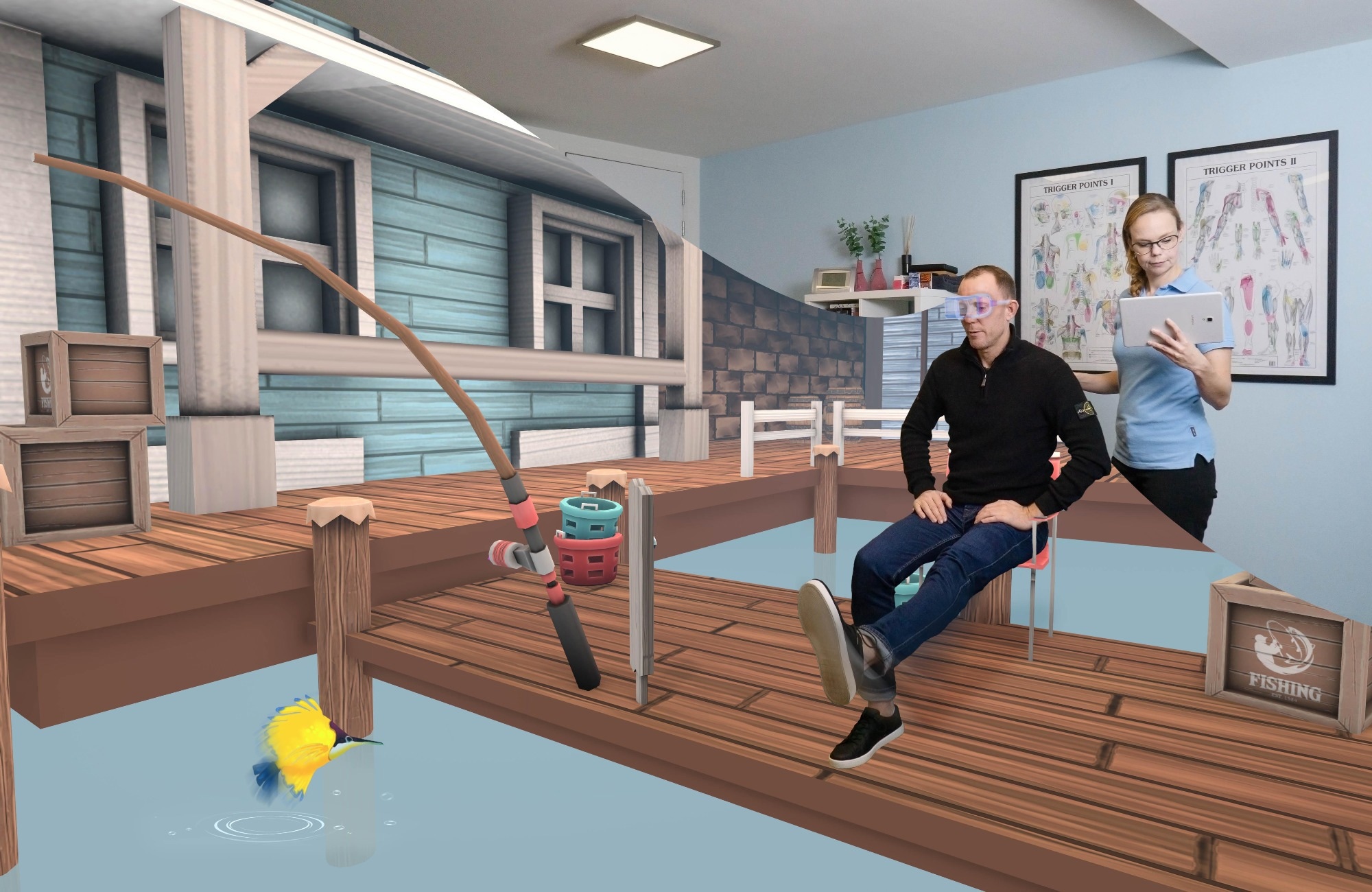
Finally, we are providing customers with Corpus Connect. That will really be a time saver because it solves a lot of customer support questions and frustration with updates. This means that therapists can put their time into patient care instead of technology or administration.
A lot more new features are planned in 2023, so if you want to be on top of that please subscribe to our newsletter on Corpus VR's website.
About Kiki Coppelmans
 I turned to the use of Virtual reality (VR) because I experienced the positive power of VR myself, and started to develop the Corpus VR therapy solution so I can help my patients even better. As CSO and Co-Founder of inMotion VR I believe that through fun, gamified exercises with VR technology, we can get people mentally and physically in motion for a better well-being!
I turned to the use of Virtual reality (VR) because I experienced the positive power of VR myself, and started to develop the Corpus VR therapy solution so I can help my patients even better. As CSO and Co-Founder of inMotion VR I believe that through fun, gamified exercises with VR technology, we can get people mentally and physically in motion for a better well-being!
I always thought about a solution of having a library of tools that I could use on the more complex client cases, and how I could engage my patient to take an active role in their own recovery. What if that solution is something that we could multiply so we can help even more therapists and their patients physically and mentally? That is why Corpus VR was born.